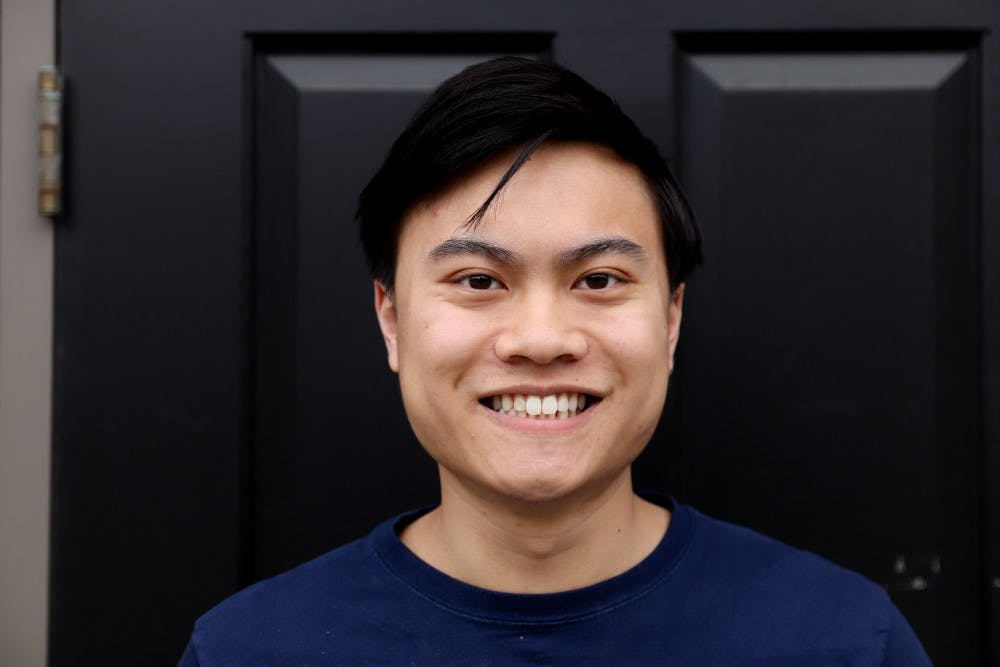I have this weird ritual at the end of every year. Instead of packing clothes for home as many folks do, I fill my suitcase with books and course packets, napkins and brochures, letters received and written — piles of printed material that I collected over the academic year. There’s the Orgo midterm I failed, drafts of papers I barely remember writing and thousands of other pen-stained notes, all condemned to sit in the damp basement of my parents’ house. Marie Kondo would be mortified.
Did you know that many Chinese people still believe in the divination of words? You write some characters, your name or something inconsequential like the things you recently ate, and the written lines can reveal something about yourself and your fortune. People around me take grand measures to protect their house with the right character positioned just so or by naming their kids auspiciously. They call this kind of fortune-telling a lot of other names … literomancy, cèzì (測字). Magic. I wouldn’t know… I can’t speak a lick of Chinese. Hell, I didn’t even get an A in English.
What I do know is that documentation of my family’s history, which spans two continents and is chock-full of generals and scholars, doctors and do-gooders, fits into a tiny cookie tin at the bottom of a closet in my grandmother’s house. There are a few pictures of the generations before me, but no writing — no words. It is hard to write, or even save scraps of writing, when you flee a war. When you enter a country where you cannot speak the language well, there are other priorities. To get me to where I am today, my parents and grandparents, aunts and uncles, toiled, quite literally, without words.
Not a day goes by without me recognizing what a privilege it was to study at a place like Brown. How lucky I was to be able to write for the sake of learning, rather than for a paycheck or a visa. I met the best writers I have ever known here: My writing mentors, Mili Mitra ’18 and Lainie Rowland ’17, who wrote the most amazing prose and commentary. My professors, in both science and humanities alike, who showed me the power of taking a stance and the pleasure of defending a well-constructed argument. And most importantly, my family, who for four years sent me their love across the country the only way they could, through texts and emails and birthday cards.
So I keep everything in my hometown, placed in plastic office bins and organized by year in black Sharpie. They’re not so much there for nostalgia or reference than they are a reminder of the things I still have to do. Like my parents, I still walk into rooms filled with people who do not look like me. I joined a newspaper with no experience, believing that I had something worthwhile to say. I think, in a weird kind of way, that writing is indeed like divination, because we define our world and make our own future from the things we put down on paper. I am reminded still that institutions even today limit the voices of those who look different or act different or believe in something different. This is because words are power: Resistance through words changes the world.
The Open Curriculum turns 50 this year, and despite its name, it still has one requirement that has held its ground through the years: competency in writing, demonstrated by a year of WRIT-designated classes. For all the lamentations from me and other STEM kids about the impossibility of writing, I find immense pleasure in the fact that Brown prepares all of its students to go out and prove something with their words — even if that thing is as small as bringing my grandmothers down into the basement and watching them beam with pride when I point at the boxes of papers and say, “This is my history.”
This month, we step away from what is most likely the four most productive years of writing in our lives. We walk away from doodles on post-its, battered blue books, heartfelt notes passed around, essays we aced (and didn’t), bubbled-in exams, all of it. We trade in all of our words in exchange for a diploma, that one last slip of paper. I think I know which was worth more.





